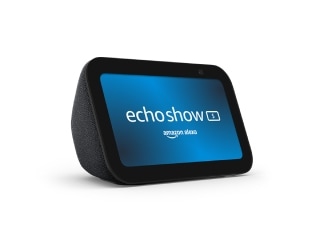- Home
- Transportation
- Transportation News
- Waymo's Self Driving Tests in California Have Fewest Human Interventions
Waymo's Self-Driving Tests in California Have Fewest Human Interventions
The metric is one way to measure the reliability of any self-driving system, although regulators have not yet determined how safe autonomous vehicles must be before they are introduced in large numbers, a timeframe that could be a decade or more away.
The latest disengagement report showed that Waymo vehicles, in tests conducted from December 2016 through November 2017, on average logged 5,596 miles without Waymo's safety drivers disengaging the system and retaking the wheel. Its next closest contender was Cruise, owned by General Motors, at 1,214 miles on average between disengagements.
Autonomous vehicles are still in the research and development stage and are being tested on public roads, especially in California where most companies competing in the space have tech hubs in Silicon Valley. California law requires that self-driving cars have a person in the driver's seat who can take over control when needed.
Waymo, for example, drove 352,545 miles in the state during the period with only 63 disengagements. Cruise vehicles drove about a third less, at 127,516 miles, and had 105 disengagements.
The third best performance came from Nissan Motor, which drove 5,007 miles and had 24 disengagements, meaning that its vehicles had disengagements on average every 208 miles.
The numbers fall off sharply after Nissan, with Baidu at an average rate of every 41 miles, chipmaker Nvidia at 4.6 miles on average, and Mercedes, with disengagements every 1.3 miles on average.
Ford Motor, Honda Motor, BMW, Volkswagen AG and Tesla said they conducted no autonomous driving testing on California's roads during the time period.
© Thomson Reuters 2018
Catch the latest from the Consumer Electronics Show on Gadgets 360, at our CES 2026 hub.
Related Stories
- Samsung Galaxy Unpacked 2025
- ChatGPT
- Redmi Note 14 Pro+
- iPhone 16
- Apple Vision Pro
- Oneplus 12
- OnePlus Nord CE 3 Lite 5G
- iPhone 13
- Xiaomi 14 Pro
- Oppo Find N3
- Tecno Spark Go (2023)
- Realme V30
- Best Phones Under 25000
- Samsung Galaxy S24 Series
- Cryptocurrency
- iQoo 12
- Samsung Galaxy S24 Ultra
- Giottus
- Samsung Galaxy Z Flip 5
- Apple 'Scary Fast'
- Housefull 5
- GoPro Hero 12 Black Review
- Invincible Season 2
- JioGlass
- HD Ready TV
- Laptop Under 50000
- Smartwatch Under 10000
- Latest Mobile Phones
- Compare Phones
- Tecno Spark Go 3
- iQOO Z11 Turbo
- OPPO A6c
- Samsung Galaxy A07 5G
- Vivo Y500i
- OnePlus Turbo 6V
- OnePlus Turbo 6
- Itel Zeno 20 Max
- Lenovo Yoga Slim 7x (2025)
- Lenovo Yoga Slim 7a
- Realme Pad 3
- OPPO Pad Air 5
- Garmin Quatix 8 Pro
- NoiseFit Pro 6R
- Haier H5E Series
- Acerpure Nitro Z Series 100-inch QLED TV
- Asus ROG Ally
- Nintendo Switch Lite
- Haier 1.6 Ton 5 Star Inverter Split AC (HSU19G-MZAID5BN-INV)
- Haier 1.6 Ton 5 Star Inverter Split AC (HSU19G-MZAIM5BN-INV)

















